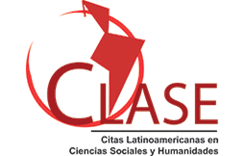Control practices in solidarity projects: case study from the perspective of institutional theory
Keywords:
accounting, control practices, solidarity economy, institutional theory.Abstract
This work aims to analyze the process of institutionalization of management control practices in projects related to the Social and Solidarity Economy. It was conducted a case study in a association of rural producers in the municipality of Tunas do Paraná (PR), using the technique os participant observation and the perspective of analysis of Institutional Theory. It was noted that the driving factors for the adoption of control in the venture were entering into institutional markets such as the Program of Food Acquisition from Family Agriculture (PAA). It was observed that public policies to support family producers have significant weight in local dynamics and to exchange social economic and management, having also a role of coercitive mechanism in associative enterprises.Downloads
Download data is not yet available.
Metrics
Metrics Loading ...
Downloads
Published
2014-11-25
How to Cite
Carneiro, L. M., Panhoca, L., Sampaio, C. A. C., & Pacheco, V. (2014). Control practices in solidarity projects: case study from the perspective of institutional theory. Revista Brasileira De Gestão E Desenvolvimento Regional, 10(4). Retrieved from https://www.rbgdr.net/revista/index.php/rbgdr/article/view/1526
Issue
Section
Artigos
License
Authors who have their papers accepted and published in the Brazilian Journal of Regional Management and Development must agree to the copyright policy CC BY https://creativecommons.org/licenses/by/4.0/.
If the article is accepted for publication, the copyright is automatically assigned to the Brazilian Journal of Regional Management and Development.

















